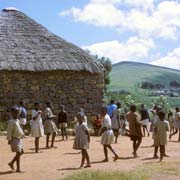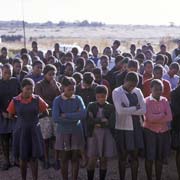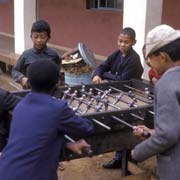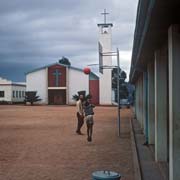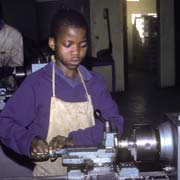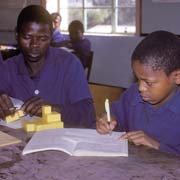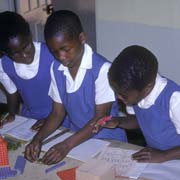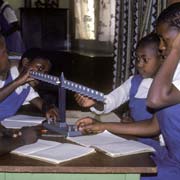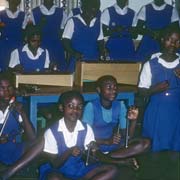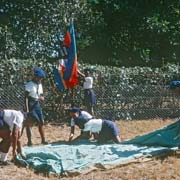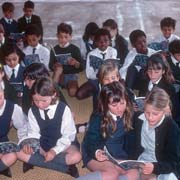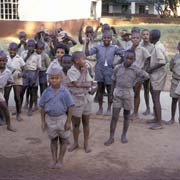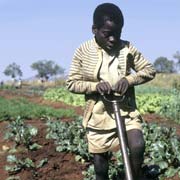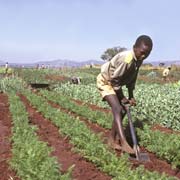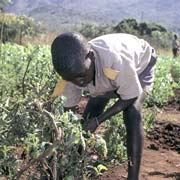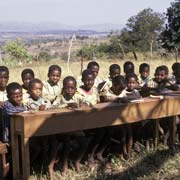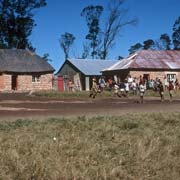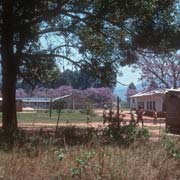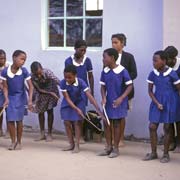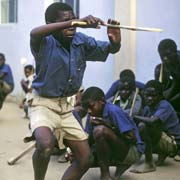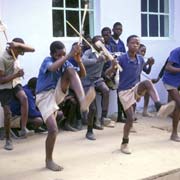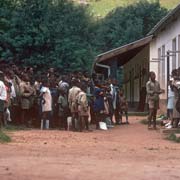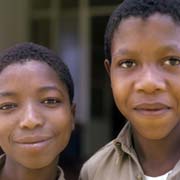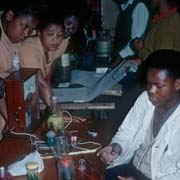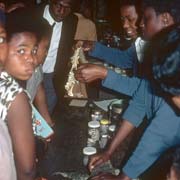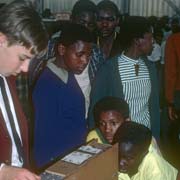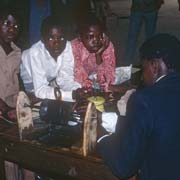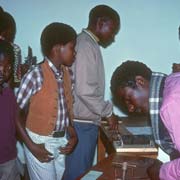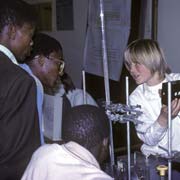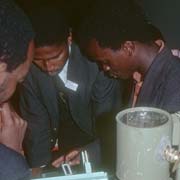Photos of School life in Swaziland
School life in Swaziland
Education is strongly valued in Swaziland and a family may have to make sacrifices to be able to send their children to school. Fees have to be paid and it may happen that a family can not send all children to school.
you may then send it as a postcard if you wish.
The child who is at school is under great pressure to perform well; otherwise, a non-performing boy should have stayed at home looking after his father's cattle while his sibling was sent, or, if it was a girl, she could have stayed home and help her mother. Small children may have to walk an hour or more to reach school in a remote area and in winter time that may mean walking barefoot over frosty ground in high lying areas like Mbabane or Hlatikulu.
There are many schools in Swaziland and the quality of education varies; there are small primary schools that were set up by the community with limited means and sometimes with unqualified teachers; the Department of Education in Mbabane would then have to support them with equipment and teaching materials. On the other end of the spectrum there are well-equipped Government and Mission schools, sometimes with boarding facilities for children from outlying areas. There are International schools, like Waterford-Kamhlaba in Mbabane, that also attracted students from South Africa during the "Apartheid" days when schools over there were strictly segregated along racial lines..
One of the well equipped boarding schools was Salesian Primary and High School in Manzini, a well-run Catholic school. In the Primary section the children had a Maths laboratory with equipment that would make arithmetic easier to understand; there was a school band and many extra curricular activities. Its High School had well equipped science labs and a workshop with machinery to teach vocational subjects. In rural areas agriculture could be taught, as all children came from farms, like in Mashobeni North school: they could take the produce home to impress their parents.
Every year a school's Science Fair was held at the Showgrounds in Manzini, where students would show off the science projects they had been doing. Well equipped schools could obviously show more elaborate projects than the smaller rural schools, but everyone had a go and the projects would be judged by representatives of the Ministry of Education.
See also: Evelyn Baring High School, Nhlangano.



